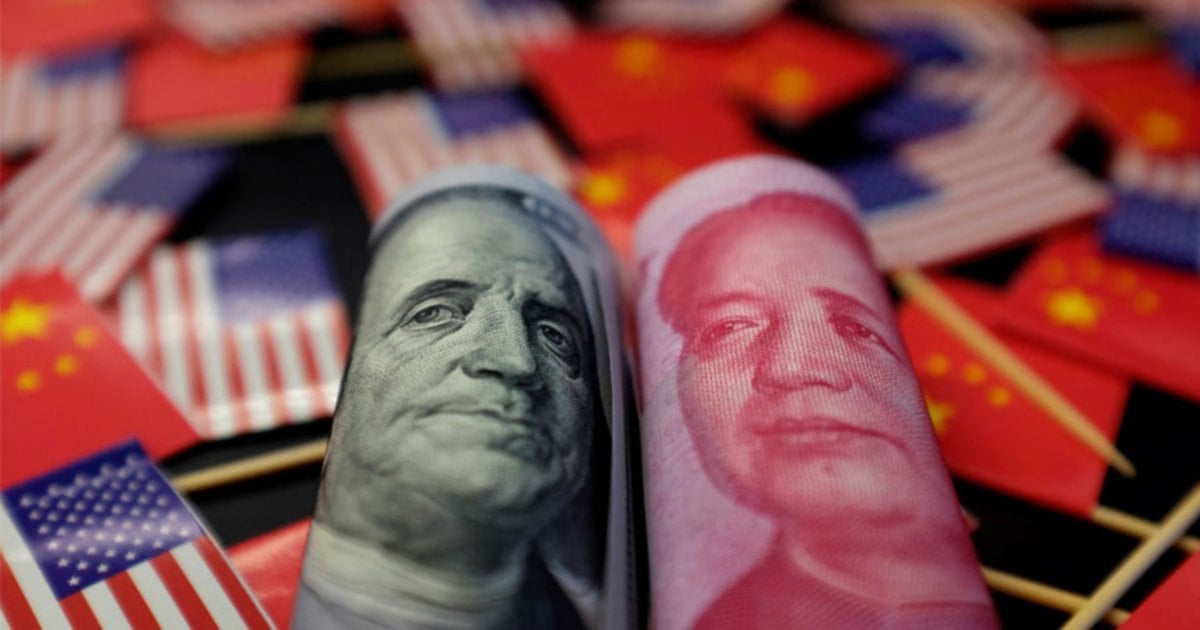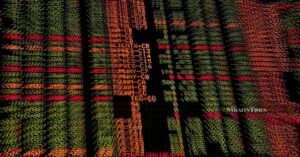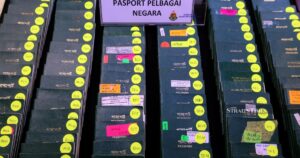A breakthrough in United States-China trade talks has propelled world stocks and the US dollar higher, but investors fear further negotiations could prove a long slog, tempering optimism, as risks of a global economic slowdown persist.
After two days of talks with Chinese officials in Geneva, US Treasury Secretary Scott Bessent said on Monday the two sides had agreed to a 90-day pause on measures and that tariffs would fall by over 100 percentage points.
That leaves US tariffs on Chinese goods at 30 per cent from May 14 to Aug 12 and Chinese duties on US imports at 10 per cent, beating investors’ best-case scenarios going into the talks.
The US dollar jumped over one per cent against a basket of major currencies, as the yen and Swiss franc fell along with other safe-haven assets like gold and government bonds.
US stocks soared, with the benchmark S&P 500 index rising 2.3 per cent in morning trading, while the tech-heavy Nasdaq Composite jumped three per cent.
US Treasury prices sagged, sending the benchmark 10-year Treasury yield to 4.44 per cent, its highest in about a month, as investors moved away from safe havens and scooped up risk assets. MSCI’s index of global shares rose 1.5 per cent.
“This is a relief rally that the worst-case scenario in tariffs, being tariffs over 100 per cent, is not likely to materialise,” said John Praveen, managing director at Paleo Leon in Princeton, New Jersey.
“We may not get zero tariffs but the worst case is unlikely. We’ve pulled back from the brink.”
But relief was tempered by caution, given a more permanent trade deal needs to be struck, while higher tariffs overall are still likely to weigh on the global economy.
“It’s long-term positive plus 90 days of uncertainty,” said Charles Wang, chairman of Shenzhen Dragon Pacific Capital Management Co.
Michael Metcalfe, head of macro strategy at State Street Global Markets in London, estimated that Monday’s US-China trade deal implied an average effective tariff rate of around 15 per cent.
“Given where expectations were, it’s a net positive,” he said. “You basically reverse the reciprocal tariff announcement, and if you reverse the reciprocal tariff announcement you are back to square one.”
US President Donald Trump had imposed tariffs of 145 per cent on imports of Chinese goods. China in turn raised tariffs on US goods to 125 per cent and limited exports of some vital rare earth minerals.
Those measures had brought nearly US$600 billion in two-way trade to a standstill, disrupting supply chains and sparking fears the global economy could crater.
Trump‘s April 2 “Liberation Day” announcement of sweeping tariffs sparked a sharp exit from US assets, including the US dollar and Treasuries, mainstays of the global financial system.
Heightened uncertainty over US trade policy hurt business and consumer confidence.
“This pause gives US companies more time to adapt and to plan for contingencies should the trade talks go sideways again,” said Jamie Cox, managing partner for Harris Financial Group.
Reassuring for markets are signs that Trump may be rethinking his trade strategy, as economic indicators have turned south and central bankers have warned of risks of slowing growth and rising inflation.
A deal last week with Britain, plus positive noises from Japan, Vietnam and South Korea, helped restore some confidence, along with a cooling in geopolitical tensions.
“This is only a three-month temporary reduction of tariffs. So this is the beginning of a long process,” said Zhiwei Zhang, chief economist at Pinpoint Asset Management in Hong Kong.
“The two sides will spend months probably, to come up with a resolution, or reach a final trade deal, but this is a very good starting point.”
Rabobank’s head of FX strategy Jane Foley said there was more optimism the tariffs would not be as devastating as many had feared, but this did not mean a return to the pre-Trump status quo.
“The overall scenario is not as bad as it could have been, but we still have a fair amount of uncertainty about where these tariffs will settle, their impact on world growth and central bank policy,” she said.
* The writers are from Reuters
© New Straits Times Press (M) Bhd






